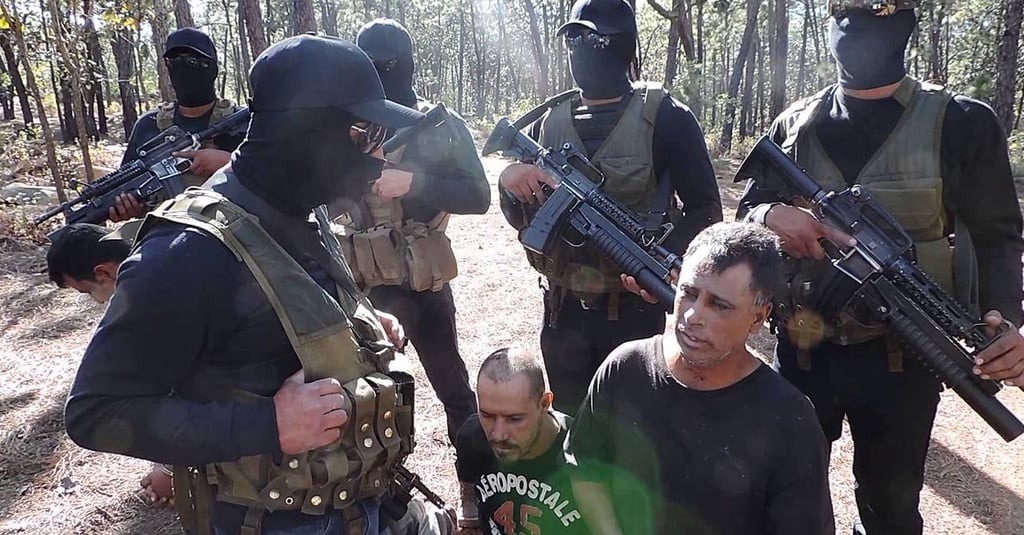The Global Reach of Cartels: Why Kenya Must Take the CJNG Threat Seriously
The Jalisco New Generation Cartel (CJNG) has expanded its operations into Kenya, signaling a dangerous shift in global drug trafficking. With ties to violent criminal networks and billions in revenue, their presence in East Africa poses a national security and economic threat. Kenya must act decisively to prevent becoming a narco-state battleground.
OPINIONPOLITICS
Emmanuel Makome
3/27/20253 min read


The Global Reach of Cartels: Why Kenya Must Take the CJNG Threat Seriously
In what seems like a plot twist from Breaking Bad, the revelation that Mexico’s Jalisco New Generation Cartel (CJNG) was operating a meth lab in Kenya should send shockwaves through the country's security apparatus. For years, Kenya has been a known transit hub for drugs moving from Latin America and Asia into Europe and the Middle East, but this latest development confirms something more troubling—the cartels are no longer just passing through. They are setting up shop.
CJNG: A New and Deadly Player in Africa
The CJNG is no ordinary cartel. Led by Nemesio Oseguera Cervantes, aka El Mencho, it is one of the most violent and sophisticated criminal organizations in the world. The cartel's expansion into Kenya, with a large-scale methamphetamine production lab in Namanga, signifies a major strategic move. This isn’t just about smuggling anymore; it's about embedding themselves into the region, exploiting weak institutions, and creating a new revenue stream that will fuel further violence and corruption.
Kenya's location along the East African coast makes it a perfect gateway for drug trafficking, particularly to Europe and the Arabian Peninsula. If CJNG establishes deeper roots, the consequences could be devastating—not only for Kenya but for the entire region.
The Economic and Social Cost of a Drug Economy
The presence of powerful cartels in a country does not just increase crime rates—it fundamentally alters governance, law enforcement, and the economy. Mexican cartels have shown a disturbing ability to infiltrate institutions, bribe officials, and create economies that run parallel to the legitimate state. If Kenya becomes a major production and transit hub for CJNG, the cost will be enormous:
Corruption Surge – Drug money has a way of finding its way into politics, law enforcement, and the judiciary. The more entrenched the cartels become, the harder it is to dismantle their networks.
Increased Violence – The cartel wars in Mexico are among the bloodiest conflicts in the world. If CJNG establishes control in Kenya, expect an escalation in assassinations, gang warfare, and police killings.
Public Health Crisis – Methamphetamine is one of the most addictive and destructive drugs. If local distribution grows, Kenya could face a crisis similar to the opioid epidemic in the U.S.
Tourism and Investment Threats – Foreign investors and tourists avoid unstable countries. If Kenya gains a reputation as a narco-state, the economic repercussions will be severe.
Kenya’s Next Move: A War on Drugs or a Silent Takeover?
The dismantling of the Namanga meth lab was a major victory, but it’s likely just the tip of the iceberg. The question now is: Will Kenya step up its fight against drug trafficking, or will it allow the cartels to dig in deeper?
To prevent Kenya from becoming the next battleground for international drug cartels, the government must:
Strengthen Law Enforcement & Intelligence: Kenya’s anti-narcotics units need more funding, training, and cooperation with international agencies like the DEA and Interpol. The fight against cartels is global, and Kenya cannot do it alone.
Target Money Laundering Networks: CJNG doesn’t just move drugs; it moves billions of dollars. Cracking down on illicit financial flows will make it harder for the cartel to operate.
Close Border Loopholes: Kenya’s borders, particularly along the coast and with Tanzania, need better monitoring to stop drugs and cartel operatives from moving freely.
Expose & Punish Corrupt Officials: Cartels thrive where they can buy protection. Kenya’s leadership must show zero tolerance for officials who collaborate with criminal organizations.
Educate the Public on Drug Dangers: Preventing drug abuse before it becomes a crisis is crucial. Public awareness campaigns can help curb local demand for meth and other narcotics.
Conclusion: A Defining Moment for Kenya
Kenya stands at a crossroads. The country can either recognize the threat of CJNG and act decisively or allow the slow creep of cartel influence to take hold. If history has taught us anything, it’s that once cartels establish deep roots, removing them becomes nearly impossible. Mexico is proof of this.
The war on drugs is no longer just the concern of North and South America—it is now Kenya’s fight too. The government and its people must decide: Will Kenya be a stronghold of law and order, or will it fall into the hands of narco-tyranny?
© 2026. Ke Press Global. A Ke Harbor Company. All rights reserved.
FOLLOW KE PRESS GLOBAL ON :
Contact us


